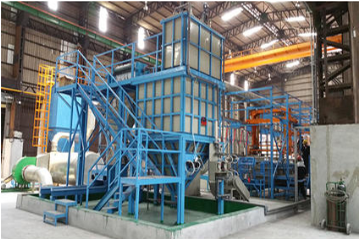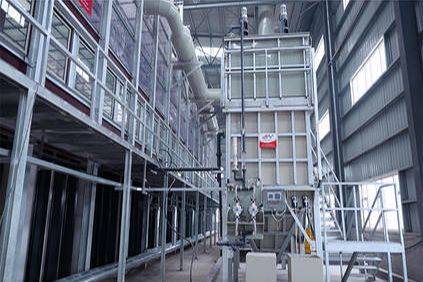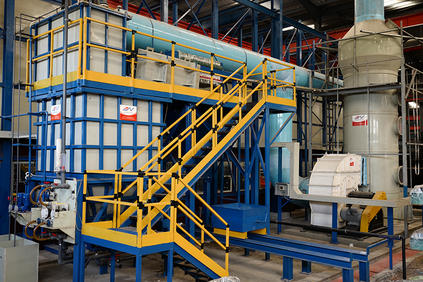In the world of manufacturing, the durability and longevity of products are paramount. One of the most effective methods to enhance the lifespan of steel pipes is through galvanization. Pipes galvanizing lines play a crucial role in this process, ensuring that steel pipes are coated with a protective layer of zinc. This not only prevents corrosion but also significantly extends the service life of the pipes, making them ideal for various applications, from construction to plumbing.
What is Galvanization?
Galvanization is a process that involves applying a protective zinc coating to steel or iron to prevent rusting. The most common method used in pipes galvanizing lines is hot-dip galvanization, where pipes are submerged in molten zinc. This method creates a robust bond between the zinc and the steel, resulting in a long-lasting protective layer. The process is not only efficient but also environmentally friendly, as it reduces the need for frequent replacements and repairs.

The Importance of Pipes Galvanizing Lines
Pipes galvanizing lines are essential in ensuring that the galvanization process is carried out effectively and efficiently. These lines are equipped with advanced technology that automates various stages of the galvanization process, including cleaning, pickling, and coating. This automation not only speeds up production but also ensures consistent quality across all products.
Moreover, modern pipes galvanizing lines are designed to minimize waste and energy consumption. By optimizing the use of resources, manufacturers can reduce their environmental footprint while maintaining high production standards. This commitment to sustainability is increasingly important in today’s market, where consumers are more conscious of the environmental impact of their purchases.
Applications of Galvanized Pipes
Galvanized pipes are widely used in various industries due to their enhanced durability and resistance to corrosion. They are commonly found in construction, where they are used for structural support, plumbing systems, and HVAC applications. Additionally, galvanized pipes are essential in agricultural settings for irrigation systems and in the oil and gas industry for transporting fluids.

The versatility of galvanized pipes makes them a preferred choice for many manufacturers and contractors. Their ability to withstand harsh environmental conditions without deteriorating ensures that projects remain on schedule and within budget.
Future Trends in Pipes Galvanizing Lines
As technology continues to evolve, so too do the methods and equipment used in pipes galvanizing lines. Innovations such as smart manufacturing and Industry 4.0 are set to revolutionize the galvanization process. By integrating IoT (Internet of Things) technology, manufacturers can monitor and optimize the galvanization process in real-time, leading to improved efficiency and reduced costs.
Furthermore, advancements in coating materials and techniques are being explored to enhance the protective qualities of galvanized pipes. Research into alternative coatings that offer even greater resistance to corrosion and wear is ongoing, promising exciting developments in the future of pipes galvanizing lines.

Conclusion
Pipes galvanizing lines are a vital component of modern manufacturing, providing a reliable solution for enhancing the durability of steel pipes. As industries continue to prioritize sustainability and efficiency, the importance of these lines will only grow. By investing in advanced galvanization technology, manufacturers can ensure that they meet the demands of the market while contributing to a more sustainable future. Whether in construction, agriculture, or energy, galvanized pipes will remain a cornerstone of reliable infrastructure for years to come.
Post time: Apr-15-2025
